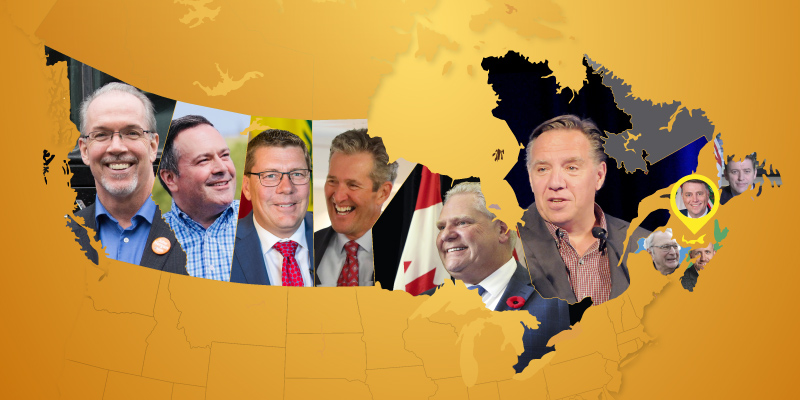New Brunswick Premier Higgs tops among peers on spending and tax policy

Many provinces are running budget surpluses, but premiers across the country can look to New Brunswick to see what a solid fiscal framework looks like.
According to a new study published by the Fraser Institute, New Brunswick Premier Blaine Higgs is the top-performing premier in Canada on fiscal issues. The study ranked premiers in all 10 provinces based on their relative performance on three core components of fiscal policy—government spending, taxes, and deficits and debt.
What has Higgs done right?
Simply put, he’s demonstrated the most spending restraint of any premier and has been the only premier to keep the pace of growth in government spending (excluding debt interest costs) below the pace of his province’s economic growth during his tenure (2018 to present).
In contrast, Premier François Legault of Quebec had the poorest score on government spending (followed by Scott Moe of Saskatchewan and Dennis King of Prince Edward Island). During Legault’s tenure, government spending (again, excluding interest costs) has grown, on average, by more than 10 per cent annually, greatly outpacing average annual economic growth in Quebec over the same period.
Due to the Higgs government’s restrained approach to spending, New Brunswick has run consecutive budget surpluses—that is, when government spends less than what it collects in revenue in a single fiscal year. The province managed to even run surpluses throughout the pandemic, a unique feat in Canada as all other provinces chose to borrow money and plunge deeper into debt.
The study also shows that New Brunswick’s debt as a share of the economy declined by the greatest percentage of any province between 2018 and 2022. Clearly, spending restraint is paying off. With ongoing surpluses and declining debt, the Higgs government has created fiscal room to tackle other pressing challenges including New Brunswick’s high tax rates. In fact, the government reduced taxes in last year’s budget and has promised further personal income tax and property tax reductions in its recent throne speech.
Of course, other provinces have taken a different approach to spending and consequently have less room for tax reductions. For example, Alberta’s Jason Kenney (who recently stepped down as premier) placed last among premiers on deficits and debt as his government recorded relatively large deficits in 2019/20 and 2020/21 and an outsized increase in provincial debt during his time in office. To be fair, Alberta experienced a sharp loss of revenue during COVID, particularly when oil and gas prices were low, but Kenney still failed to restrain spending before and during the pandemic. He did record a budget surplus in 2021/22, but only after resource revenues (mainly oil and gas) increased dramatically.
Economic success and responsible fiscal management go hand in hand. To adopt prudent fiscal policy, governments must prioritize and restrain spending, work intentionally to balance budgets, and avoid substantial tax burdens that harm economic activity. These fiscal fundamentals lay the best foundation for an economy to grow and people to prosper.
There’s a clear distinction between the Higgs government’s approach to government finances and the rest of the premiers. And there are key lessons each premier should learn from New Brunswick’s successful model.
Authors:
Subscribe to the Fraser Institute
Get the latest news from the Fraser Institute on the latest research studies, news and events.


